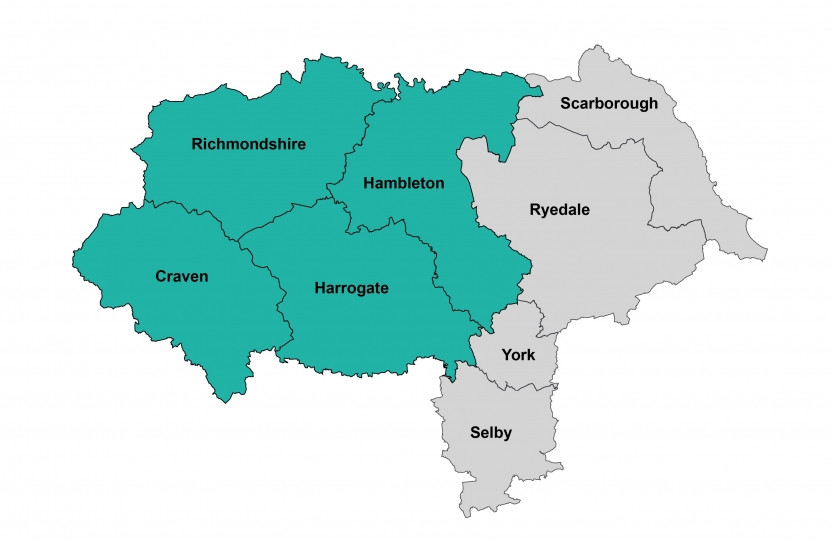
After years of discussion and debate, it seems that we are finally about to close the gap with many urban areas around the country and secure a devolution deal for York and North Yorkshire.
The Government sees the introduction of a mayor and combined authority as a good opportunity to look again at the other tiers of local government in the region, meaning that any devolution deal is likely to come alongside a reorganisation of our local councils.
One option being considered is to have a single unitary authority for York and North Yorkshire to mirror the combined authority. The problem is that this would create two tiers to administer the same area and will inevitably lead to conflict and confusion as to the respective roles of the mayor and the council.
Another option is to keep York’s existing unitary authority and create a second unitary authority from the seven districts of North Yorkshire. This would arguably be the least disruptive option and for that reason, is favoured by both North Yorkshire County Council and City of York Council.
The drawback for North Yorkshire is that the sheer geographical size of such a new unitary authority would not be ideal for the purposes of local decision-making. It would also leave York as very much the junior partner in the combined authority and would be a missed opportunity for the city to remove the arbitrary boundary with the rest of the ceremonial county.
After much thought therefore, I have decided to give my backing for a third proposal which is gaining traction locally. The East/West proposal would create two unitary authorities of similar population size and comparable economic heft. York would join with Selby, Ryedale and Scarborough to form the eastern unitary authority, with Craven, Harrogate, Richmondshire and Hambleton forming the western authority.
This approach has several benefits, the main one being that it will get the balance right between creating authorities that have the scale and capacity to invest in improved services, whilst being small enough to remain accountable to local people. Two equal partners will also complement the mayoral combined authority, creating a balanced political structure and spreading investment evenly around the county.
For York, the reorganisation presents an opportunity to strengthen existing links with the surrounding area and to push for mutually beneficial investment in and around the A64, which would be the main transport artery connecting up the local authority. Our thriving tourism industry in the city centre will complement rural and coastal tourism in the North York Moors, Scarborough and Whitby. Our adult social care and children’s services, already under pressure, will benefit from the additional scale and capacity that a unitary authority will bring. Annual efficiencies from the East/West model are expected to be £33-56 million in total, not insignificant at a time when City of York Council are trying to find £4m in budget savings.
Over and above the economic and administrative benefits, it is about finding a system of local government that works in the long-term. What we can do without is being back in a position where we are discussing local government reorganisation in twenty years time. The combined authority under a powerful elected mayor will ensure that our voice is heard on the regional and national level, whilst two unitary authorities will preserve local accountability on the issues closest to home, from new housing growth in our towns and villages to the support offered to our children at school.
If we were to go down the East/West route it is important that York retains its historic city council, as I expect the likes of Scarborough and Harrogate will be keen to regain their old town councils. The city council will continue to play an important role in the giving York its distinct identity and in the civic life of the city. I have also advocated that the new town councils are given independent income streams and a real say over local planning and the provision of local facilities.
Despite all the turbulence of the last few years, I am optimistic about the future of our city. We have a Government that remains committed to ‘levelling up’ around the country. This is not just about railways and roads; it is about shifting the country’s centre of power and productivity. With a devolution deal of its own, York will finally be able to get in on the action.

